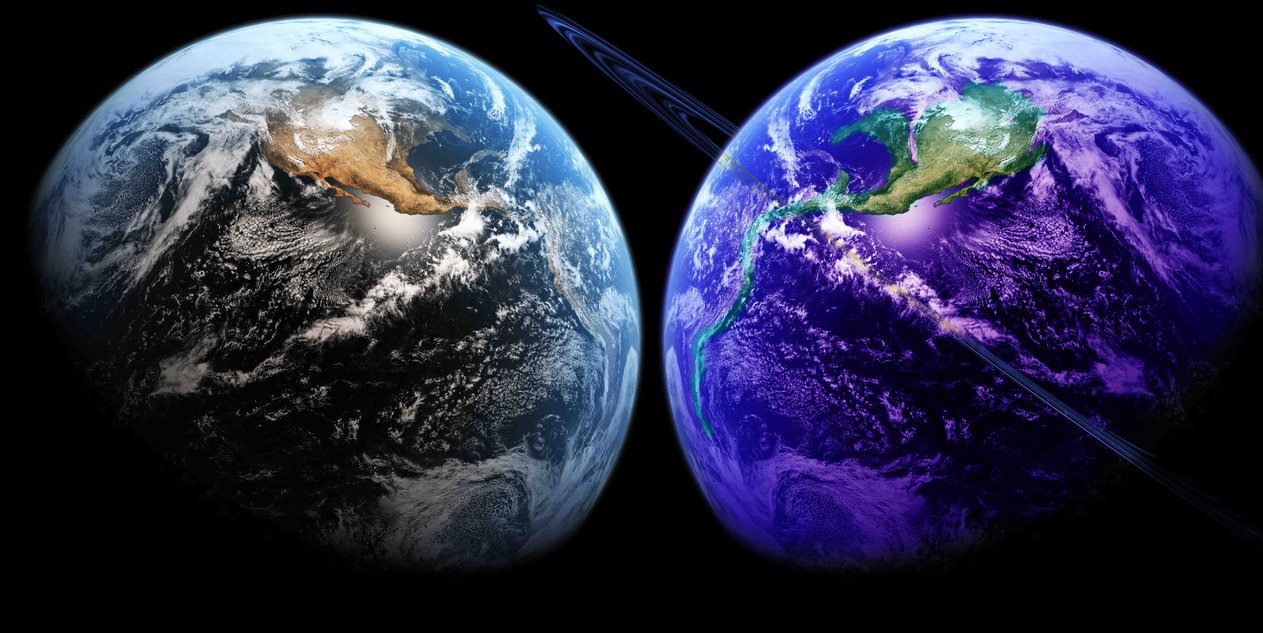As if being a neanderthal wasn’t enough, apparently we could also be Martians.
I am really looking forward to that next family reunion!
Evidence suggests life on Earth could have started on Mars:
By Joshua Filmer posted on January 1, 2014
There is a theory that’s gaining a bit of traction in the scientific community, a theory which suggests that life on Earth could have come from Mars. Evidence in favor of this theory has been building over the last couple of decades, and it indicates that we all (could be) Martians.
The theory basically asserts that, some 4-billion years ago, life started on Mars. Then a meteor then struck the planet, sending little chunks of Martian rocks (containing Martian life) into interplanetary space. One or more of these rocks then fell to Earth, seeding life on the planet and BOOM, here you are.
This new breed of evidence comes from the Westheimer Institute for Science and Technology located in Florida after an analysis of a Martian meteorite. In August 2013, Prefessor Steven Benner revealed his findings at a geochemist summit.
On the surface, the findings are pretty simple, but they have deep ramifications. The analysis of these Martian meteorites shows the presence of highly oxidized molybdenum; a substance crucial to the early development of life. According to Professor Benner, “This form of molybdenum couldn’t have been available on Earth at the time life first began, because three billion years ago the surface of the Earth had very little oxygen, but Mars did. It’s yet another piece of evidence which makes it more likely life came to Earth on a Martian meteorite, rather than starting on this planet.”
The “life originating on Mars” idea is certainly looking more favorable the more we know about the origins of life. One day, maybe we’ll be able to proudly proclaim “Yes, I am a Martian Ape!” Either way, as Prefessor Benner so eloquently put it, “It’s lucky that we ended up here nevertheless, as certainly Earth has been the better of the two planets for sustaining life. If our hypothetical Martian ancestors had remained on Mars, there might not have been a story to tell.”
Referred to as Panspermia, it is far from a new theory, it is a curious possibility that the more we discover, the more reason we have to continue exploration of our neighboring planet.
From Wikipedia:
Panspermia is the proposal that life forms that can survive the effects of space, such as extremophiles, become trapped in debris that is ejected into space after collisions between planets that harbor life and small Solar System bodies (SSSB). Some organisms may travel dormant for an extended amount of time before colliding randomly with other planets or intermingling with protoplanetary disks. If met with ideal conditions on a new planet’s surfaces, the organisms become active and the process of evolution begins. Panspermia is not meant to address how life began, just the method that may cause its distribution in the universe.
Follow us on FaceBook for updates and more.
Bugs Bunny and Marvin the Martian are trademarks of Warner Entertainment
3 comments




